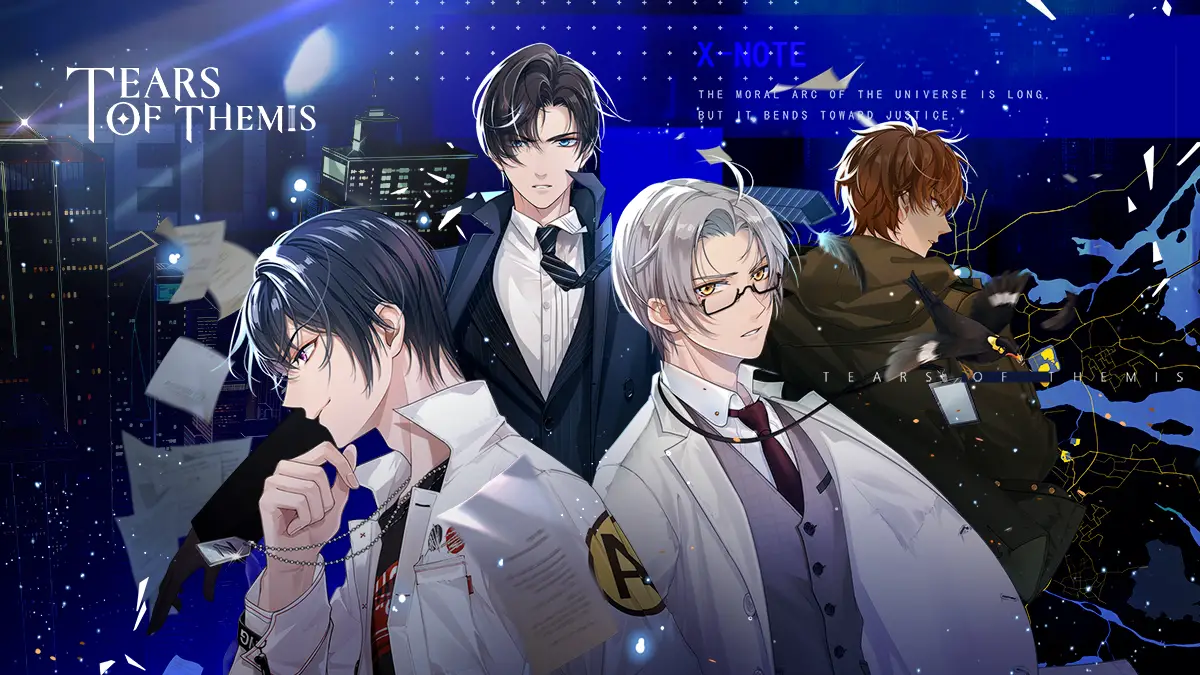Although the game’s main story is told through the visual novel style, players can look at debate mechanics in Tears of Themis much like a traditional RPG battle system.
To understand the characters you’ll be interacting with more, check out our curated list.
How does the debate system work in Tears of Themis?
With debate mechanics in Tears of Themis, there are enemies that have various arguments, all individually assigned to HP. The player will “attack” the enemy by selecting various cards to refute the argument to inflict damage.
Every card is a turn, and the player has limited cards to complete a stage. In addition, every time a card is selected for use, the thought cloud bubble of a given enemy will charge up. When complete, the enemy will take a turn to attack and lower the player’s health.
In the event that a player is dry of cards, they have the ability to refresh the deck at the expense of 1 turn.
After all arguments are defeated, the player will win the stage. Yet, players will be defeated if they run out of turns or reach 0 HP.
What are attributes?
Every card and argument contains different types of attributes. These include intuition, empathy, logic, and null (no typing). The chosen card’s attribute will affect the amount of damage a given attack does in the following way:
- Strong attacks deal out 1.5x damage
- Weak attacks deal out 0.5x damage
- Normal / null attacks deal out 1.0x damage
An easy way to remember different types is by color, which you can convert into elements. The damage chart is as follows:
| Type | Strong Versus | Weak Versus |
Empathy | Intuition | Logic |
Logic | Empathy | Intuition |
Intuition | Logic | Empathy |
What are skills?
Cards also contain skills, which can either be passive in nature or take an active effect upon selection.
Cards are designed to affect Influence (Attack stats) or Defense.
Many cards have skills designed to passively boost a card’s base stat, like Formidable cards when equipped via the Support deck.
Story gameplay
Tears of Themis has a story presented in a similar way to visual novels in which the dialogue plays on the screen with character designs in the background. Often, the player will be presented with a series of choices. These will not play a major role in the story and are instead there for flavor and can be replayed later.
In addition to the other portions of the story, the game has investigative and interactive sections as well.
Questioning
Segments of the story will have the player questioning a particular character to acquire key evidence. These questions involve selectable dialogue phrases which trigger specific sentences related to the phrase.
Much of the dialogue reveals critical information in regard to the case that is to be logged as evidence. What’s more, certain phrases can unlock new phrases which can be asked by the player character.
Clue Analysis
This aspect of the game involves inspecting items, looking for interesting spots, and trying to unlock various clues in relation to the case from said item. The item is held in a three-dimensional space, so you’ll have the ability to search around different locales to look for clues.
Investigation
During the investigation segments, players will be presented with scenes in which they’ll need to look for evidence and items with tapping. There are also items in which a scene can be triggered with dialogue, but this may not be sufficient for evidence.
If you’re struggling to find items, tap the top left corner of the screen to access the magnifying glass which will show off key evidence items.
Trials
At the end of the majority of episodes, players will collect all their gathered evidence to take to the court in an effort to achieve victory for their client.
As a given trial progresses, evidence will be shown to prove particular points. You will not be penalized for selecting the wrong evidence as you’ll be granted the chance to choose as many times as you want.
There are some trial portions where you’ll have to make a choice between two different dialogue options. For the majority of choices, any option is fine as you can either opt again for a trial to continue with slightly different vocal options for a handful of lines.
The Trial case in Episode 1 is an example whereby the dialogue differs, but the result of the trial is identical. However, the first episode is a small exception in that the choice of the player will affect the dialogue for the proceeding chapter.


